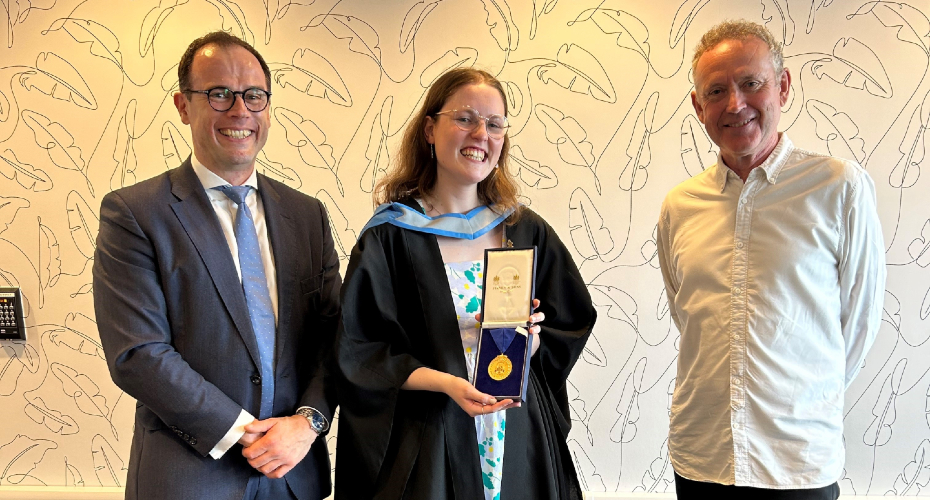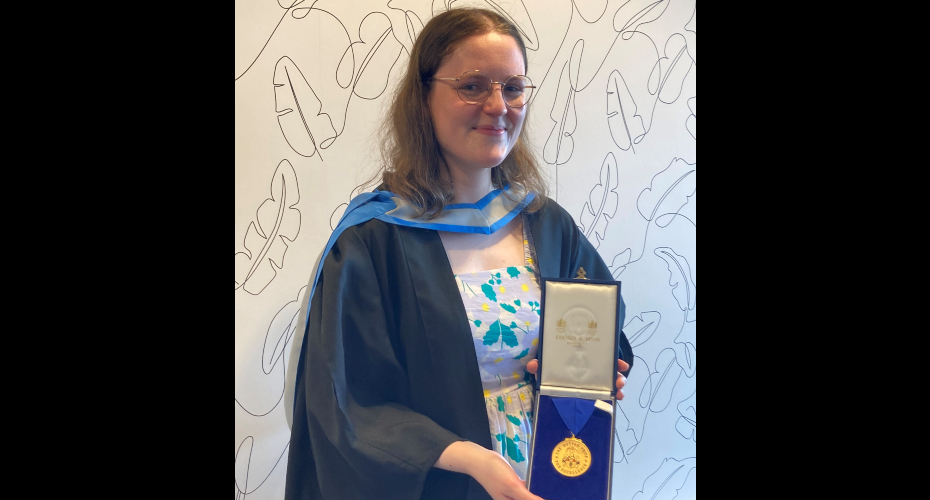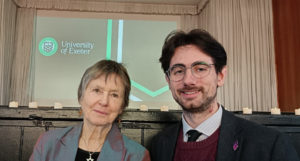HASS student wins this year’s Hutton Prize for Excellence

Hutton Prize winner Libby, with Professor Adam Watt, Deputy Pro Vice-Chancellor, HASS, and Dr Robin Durie
A politics student whose dissertation focused on the relationship between COVID-19 and domestic abuse support services has been awarded this year’s Hutton Prize for Excellence.
Libby Rush, a final year undergraduate on the BA (Hons) Politics, Philosophy and Economics degree, earned the prize for her piece which explores how the pandemic exposed systemic issues undermining the ability of service providers to respond adequately to domestic abuse. The dissertation goes on to develop a series of research-based policy recommendations.
The Hutton Prize is awarded annually to undergraduate or postgraduate students in the Faculty of Humanities, Arts and Social Sciences and The Business School. It seeks to reward, encourage and inspire those who put ethical conduct and transparency at the forefront of government, business and the professions.
Libby, based in the Department of Social and Political Sciences, Philosophy and Anthropology, said: “The dissertation shows that the experiences of domestic abuse support services during the COVID-19 pandemic were not a side-effect of the pandemic. Instead, they reflect the wider ongoing issues within the charity and health sectors. It explores the ability of services to address domestic abuse as a wicked and intersectional problem, and the impacts of the sector being forced into a marketised structure which is unable to meet its needs.”
Libby was supervised by Dr Robin Durie, Senior Lecturer in Politics, who said that the dissertation disproved the assumption that COVID-19 caused a spike in domestic abuse cases, and that post-pandemic, the rates would return to ‘normal’.
“Libby’s dissertation develops a series of genuinely powerful policy recommendations, each of which is clearly grounded in the detail and robustness of her primary research,” Dr Durie said. “These recommendations, and the wider context of the problem to which her essay is devoted, expose a deep issue of ethicality that confronts government: domestic abuse services are compelled to function in reactive and individualised ways because of both the limited funding they receive, and the modes in which this funding is disbursed, but more fundamentally, because of the failure of government to acknowledge the systemic nature of domestic abuse as a problem.”

The prize consists of one Troy ounce of gold formed into a medal, and is awarded following scrupulous assessment by the committee, who determine which dissertation best meets the ethics and good governance criteria.
Associate Dean for Education in the Business School, Professor Beverley Hawkins, added: “The aims and scope of the Hutton Prize are ideally aligned with the University of Exeter’s ambition to create socially responsible graduates who will work to make our social and economic communities greener, fairer and healthier. This year, Libby is fulfilling these aims before she graduates, producing work of the highest academic quality, ambition and impact. I am so proud to see our students demonstrating such profound awareness of the centrality of ethical practice to their respective disciplines and to our collective future.”



